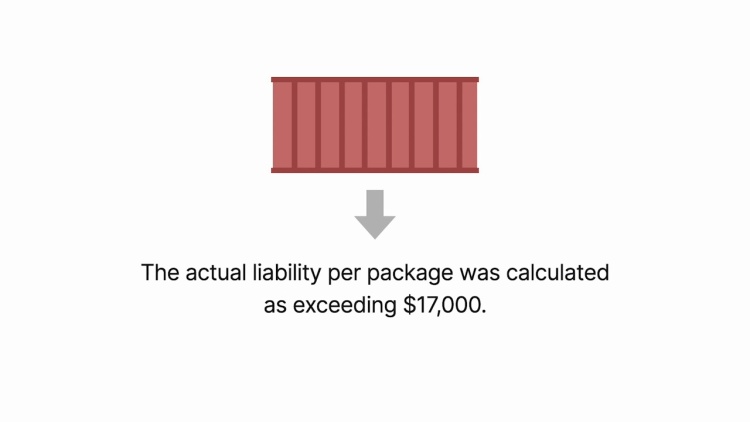Norfolk Southern Railway Co. v. Kirby
United States Supreme Court
543 U.S. 14 (2004)
- Written by Ryan McCarthy, JD
Facts
James Kirby (plaintiff) contracted with International Cargo Control (ICC) to deliver goods from Australia to Alabama. ICC, which was an intermediary forwarding company, outsourced physical transportation of the goods to Hamburg Sud (Hamburg), a shipping carrier. ICC issued a bill of lading to Kirby, and Hamburg issued a bill of lading to ICC (Hamburg bill). The Hamburg bill incorporated the default rule of the Carriage of Goods by Sea Act, which limited Hamburg’s liability for damages to $500 per package, and also contained a Himalaya Clause. This clause extended the $500 liability limit to Hamburg’s agents and independent contractors. Hamburg hired independent contractor Norfolk Southern Railway Company (Norfolk) (defendant) to transport the goods by train once the shipment arrived in a port in Savannah, Georgia. During transportation en route over land by Norfolk, a train derailment caused $1.5 million in damage to the goods. Kirby brought suit against Norfolk based on tort and contract claims. Norfolk contended that its liability to Kirby was limited by the Hamburg bill. The district court granted partial summary judgment to Norfolk, limiting liability to $500 per package, and certified the decision for interlocutory review. The United States Court of Appeals for the Eleventh Circuit reversed, holding that the Himalaya Clause could not extend limited liability to Norfolk. The United States Supreme Court granted certiorari.
Rule of Law
Issue
Holding and Reasoning (O’Connor, J.)
What to do next…
Here's why 907,000 law students have relied on our case briefs:
- Written by law professors and practitioners, not other law students. 47,100 briefs, keyed to 996 casebooks. Top-notch customer support.
- The right amount of information, includes the facts, issues, rule of law, holding and reasoning, and any concurrences and dissents.
- Access in your classes, works on your mobile and tablet. Massive library of related video lessons and high quality multiple-choice questions.
- Easy to use, uniform format for every case brief. Written in plain English, not in legalese. Our briefs summarize and simplify; they don’t just repeat the court’s language.





